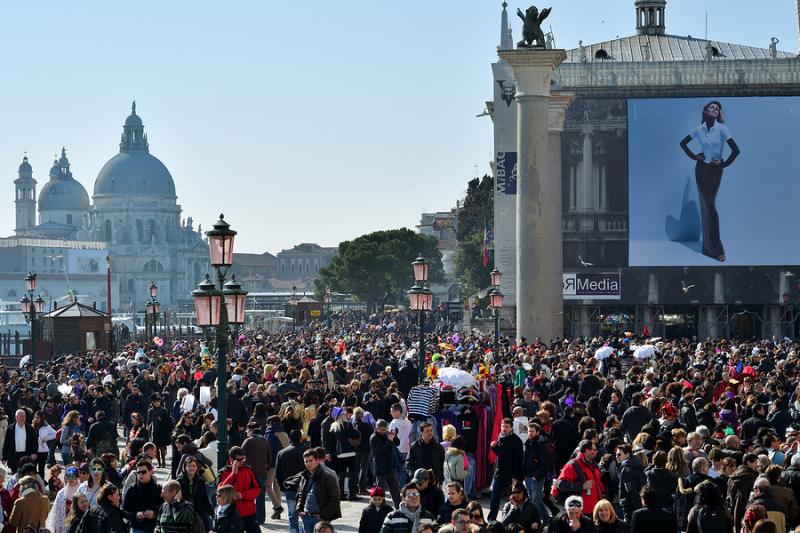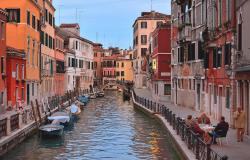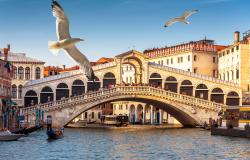Our first news story of 2019 will infuriate some, please others. Let us know what you think in comments and on our social media channels.
Venice has been authorized to charge an entry fee to visitors arriving in the city for the day by any means of transport, states a clause introduced in Italy’s budget law for 2019.
It is the so-called ‘landing tax’, which is already applied on some minor Italian islands, like Elba and the Aeolians, and costs between €2.50 and €5. For Venice, it will be possible to elevate the fee to €10, for example during peak season.
The tax is expected to be charged to all those companies that provide transportation services for commercial purposes including buses, planes, cruise ships, and vaporetti; the companies will then turn the sum to the city. Tourists will pay the fee through an increase in the cost of transportation tickets. It is still unclear whether the entry ticket will also apply to trains arriving at the Santa Lucia station and flights into Venice airport.
The tax will only concern day visitors. The goal of the measure is indeed to hit those who only stay for the day – the ones that are thought to create more burden on the city while basically not paying anything in services – and, by not staying overnight, do not pay the current city tax levied on hotel occupants (tassa di soggiorno).
Venice mayor Luigi Brugnaro has long supported the idea and expressed his satisfaction in a tweet. “Now the landing fee in #Venezia is Law! We will study a balanced and participated regulation that protects those who live, study and work in our territory.”
According to Brugnaro, the additional money will serve to keep the city clean, pay firefighters’ overtime and the additional work of road sweepers, reduce taxes on Venetians, and for all those measures that would encourage residents to keep living in the city center, reversing the trend of the last several years that sees Venetians abandoning the historic center.
The city administration believes that, through the landing tax, it can intercept a far more substantial revenue than the city tax charged to hotel occupants. The city tax brings in about €30m annually, but the landing tax could generate an estimated €50m. The landing tax seems to especially target day trippers arriving on cruise ships – more than 1.5m a year.










